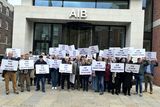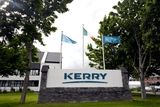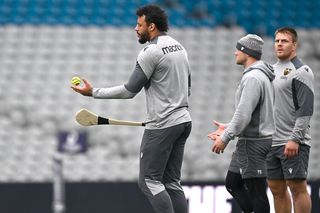Former Wavebob duo seek €1m for robotic seabed anchoring startup
Andrew Parish, former WaveBob chief executive
A former chief executive of wave energy firm Wavebob and the ex-president of its US business are raising a €1m seed funding round for Dublin-based company Subsea Micropiles.
The firm uses robotics to drill into the seabed in order to anchor floating wind turbines.
Andrew Parish and Derek Robertson, who are working with inventor and CTO Jon Machin, believe their lower-cost installation and anchoring technologies can enable offshore wind developments to be located in deeper waters, with more challenging seabed conditions.
They see potential for the firm here, in the UK and Scandinavia, as well as the US, Robertson said.
The technology has largely been born out of research co-funded by US giant Lockheed Martin, which wanted to reduce anchoring costs for wave turbines.
With the aim of reducing anchoring costs for floating platforms, it co-funded research in 2008 with the US Department of Energy to adapt land-based micropile technology for offshore construction, using robotic seabed drilling systems.
Robertson previously worked for Lockheed Martin in the US, in its new ventures division, for almost four years, after establishing Maynooth-based Wavebob's US operations, but the latter firm ran out of money in 2013.
Micropiles mimic the root piles of trees and are capable of withstanding large loads. The method can be applied thanks to the recently developed robotic seabed drilling equipment.
Robertson said: "Our industry partners believe that this technology can be applied to a wide range of anchor applications in varying soil conditions, providing significant cost savings, but also less impact on the environment when compared with other piling or anchoring methods."
The offshore wind energy industry could create 20,000 installation, operations and maintenance-related jobs, according to the Sustainable Energy Authority of Ireland. Subsea received a €200,000 Marine Institute/EU grant toward trials of its technology last year.
Join the Irish Independent WhatsApp channel
Stay up to date with all the latest news














